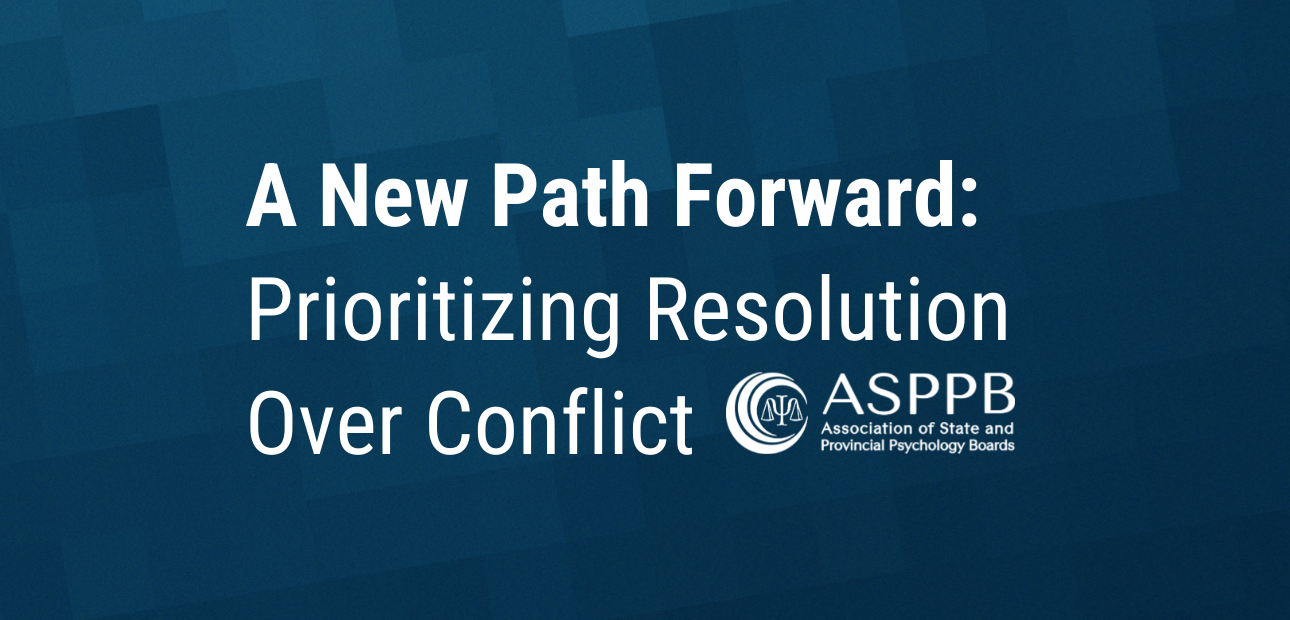A New Path Forward: Prioritizing Resolution Over Conflict

ASPPB is united by its mission: supporting our members in fulfilling their responsibility to protect the public. Additionally, ASPPB is guided by its bylaws, which direct the organization to promote cohesion within the regulatory framework of organized psychology, ensuring we build a strong foundation for the long-term success of our shared objectives.
Although the Board of Directors’ position remains steadfast—public protection is best achieved by evolving our licensure examination to be comprehensive and competency based, evaluating not only foundational knowledge but also practical skills—we find ourselves at a pivotal moment. Our collective goals are at risk of being overshadowed by a tug of war, where no clear winners emerge.
A Shift in Approach
In response to ongoing feedback from our membership and the broader professional, educational, and training communities, the Board has decided it is time to shift from conflict to resolution. As such, the Board has passed a motion to pause the October 2022 decision, which outlined that by January 1, 2026, the EPPP would consist of two parts: EPPP (Part 1–Knowledge) and EPPP (Part 2–Skills). The current EPPP (Part 2–Skills) will continue to be available to all jurisdictions as an additional means of assessing applicant competence.
Instead, we will immediately undertake exploring the feasibility of creating a single-session exam that integrates both knowledge and skills assessment—a reimagined EPPP. We plan to begin this process by engaging with our membership at the upcoming meeting in Dallas, where we will actively seek feedback on the operational and regulatory impacts of this potential change. In addition to the Dallas meeting, ASPPB will offer a variety of opportunities (e.g., townhall meetings) for our members and liaisons to provide feedback on this approach.
As we move forward, we continue to be committed to transparency, collaboration, and ensuring that our decisions reflect the collective wisdom of the psychology regulatory community. By embracing a collaborative approach and listening to the voices of our members, we aim to build a stronger, more unified licensure process and uphold our core mission of public protection. Together, we can navigate this important moment in time and shape a future that supports both the growth of our profession and the protection of those we serve.
Respectfully,
The ASPPB Board of Directors